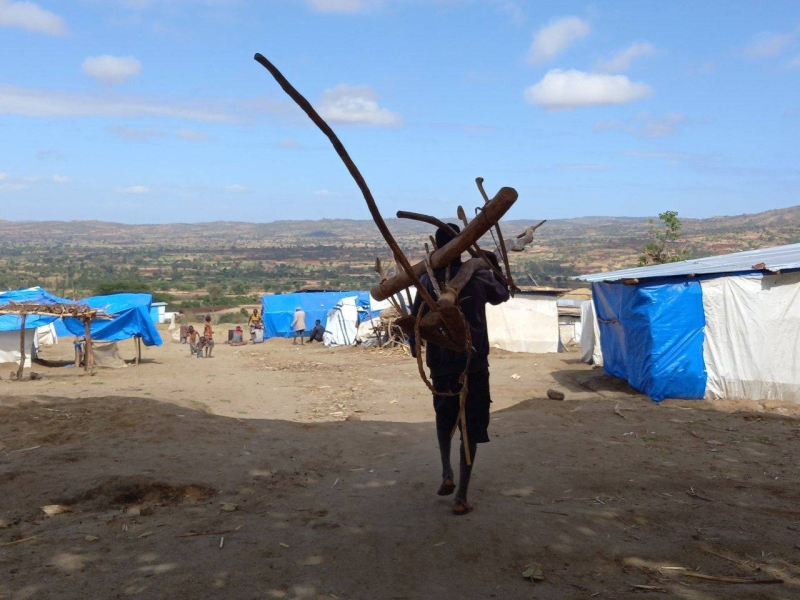The ramifications of decades of authoritarianism and massive human rights abuses are still deeply felt in Ethiopia. Political forces continue to fuel violent conflicts, while the people’s demands for justice, freedom, and a more equitable distribution of power remain unaddressed. ICTJ works closely with civil society organizations, helping them to engage with relevant institutions, promote victim-centered strategies, and contribute to Ethiopia’s transitional justice process.
Ethiopia
Image

A man carries a traditional Ethiopian Maresha plow through a camp for internally displaced persons in Konso, in southern Ethiopia, in 2022. (Ethiopian Human Rights Commission)
Current